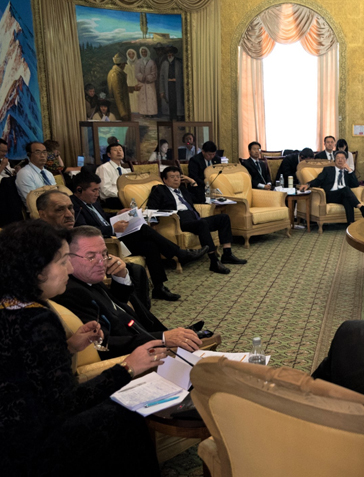
assurance of security of regional forest assets through increased and sustainable productivity and restoration of its ecological functions;
improvement of rural livelihoods through diversification of forest services and goods, and generation of more employment opportunities in the forest sector; and
stronger resilience and enhanced capacity to adapt to extreme climate.
GCA-FCM membership comprises China, Kazakhstan, Mongolia, Uzbekistan, Tajikistan, Turkmenistan, and Kyrgyzstan, represented by their respective forest ministries or departments. It welcomes partnerships with organizations and institutions in related fields.
GCA-FCM facilitates information and policy exchanges at various levels and identifies cooperation priorities. APFNet works as the coordination hub among members and partners, and contributes by organizing meetings and events, and conducting capacity building programs. Meanwhile, APFNet seeks opportunities for site demonstration projects and technology transfer support.

Vegetation restoration in arid and semi-arid areas,
Industry development with dryland resources in the areas affected by desertification, such as agroforestry, pasture and ecotourism, etc.,
Transboundary cooperation on forest/ grassland fire prevention and control,
Conservation and utilization of forest/grassland genetic resources,
Promoting capacity building of forestry/grassland professionals,
Promoting forestry/grassland scientific research cooperation and exchange,
Improving the livelihoods of communities in extremely desertified areas by transforming them into pastures dotted by clusters of shrubs.
regular training workshops,
postgraduate scholarship awards,
study tours for field learning and practices.